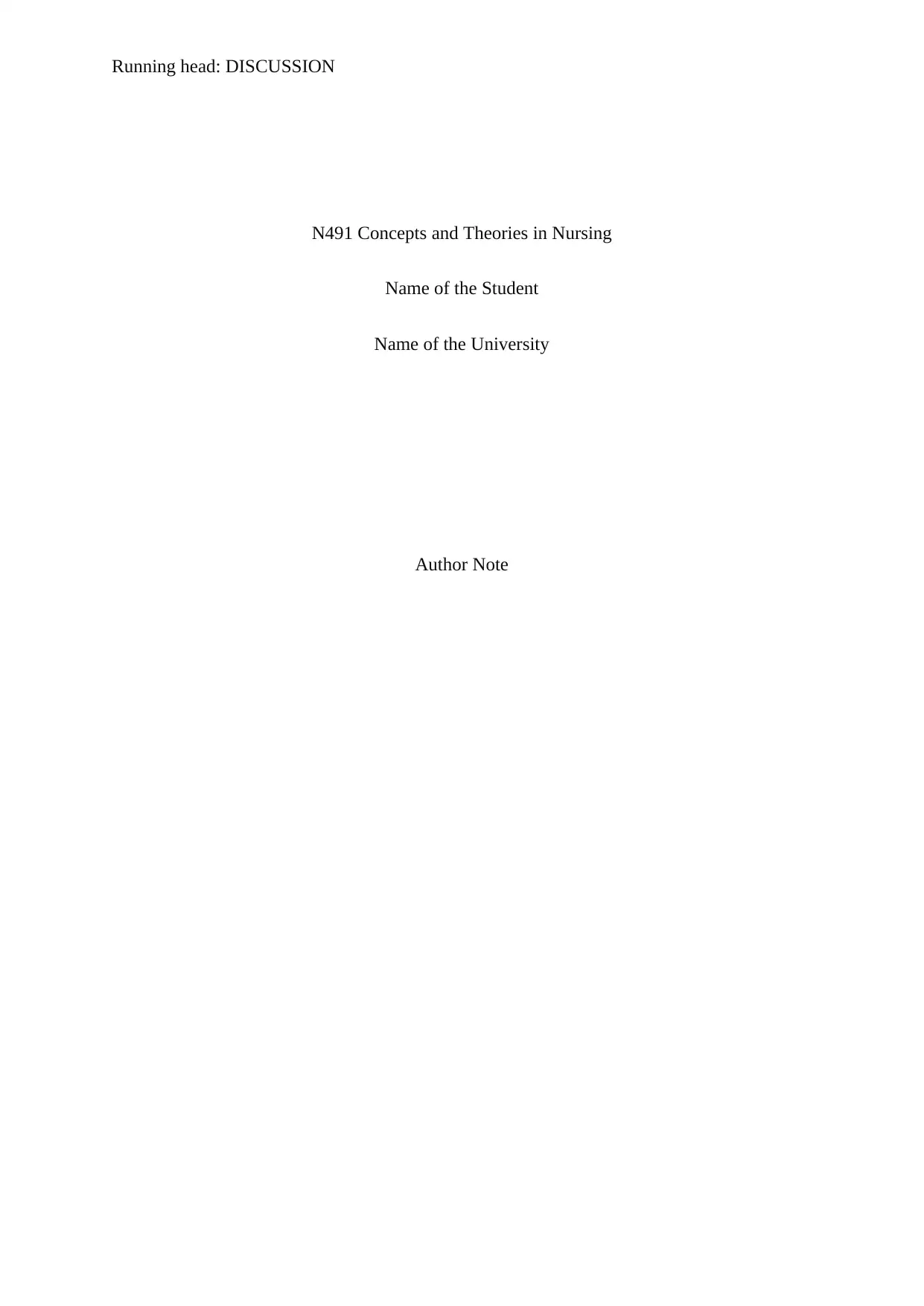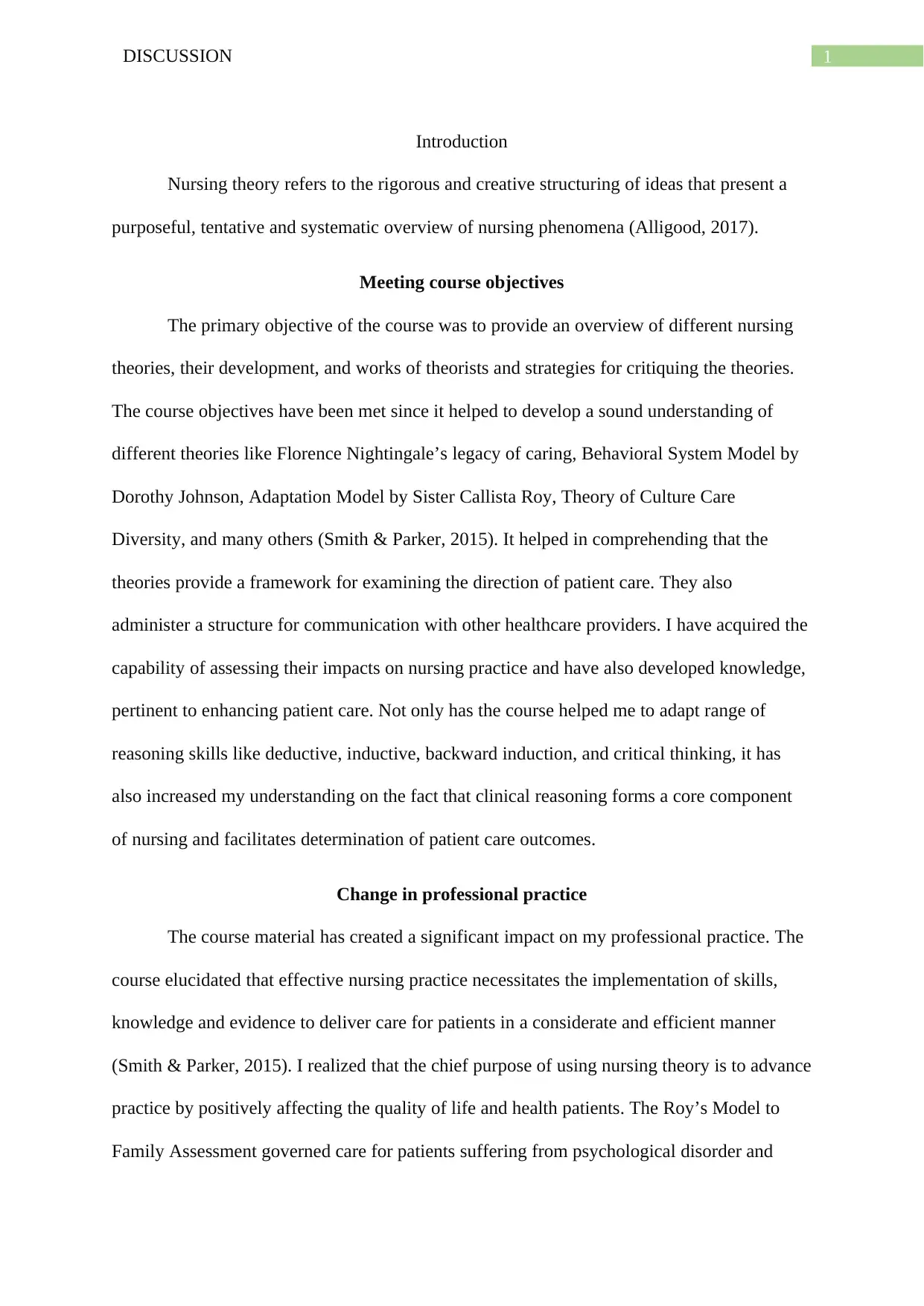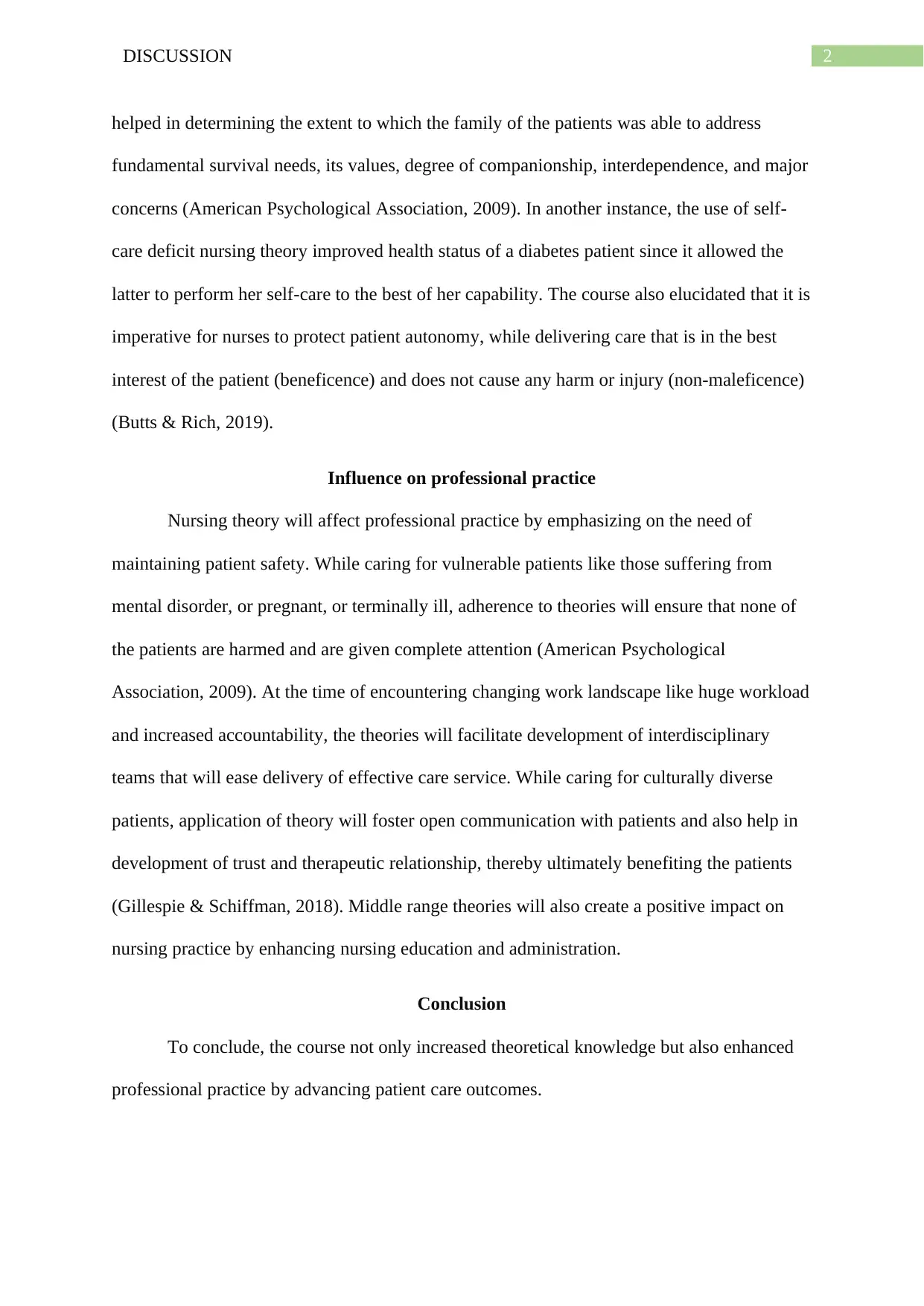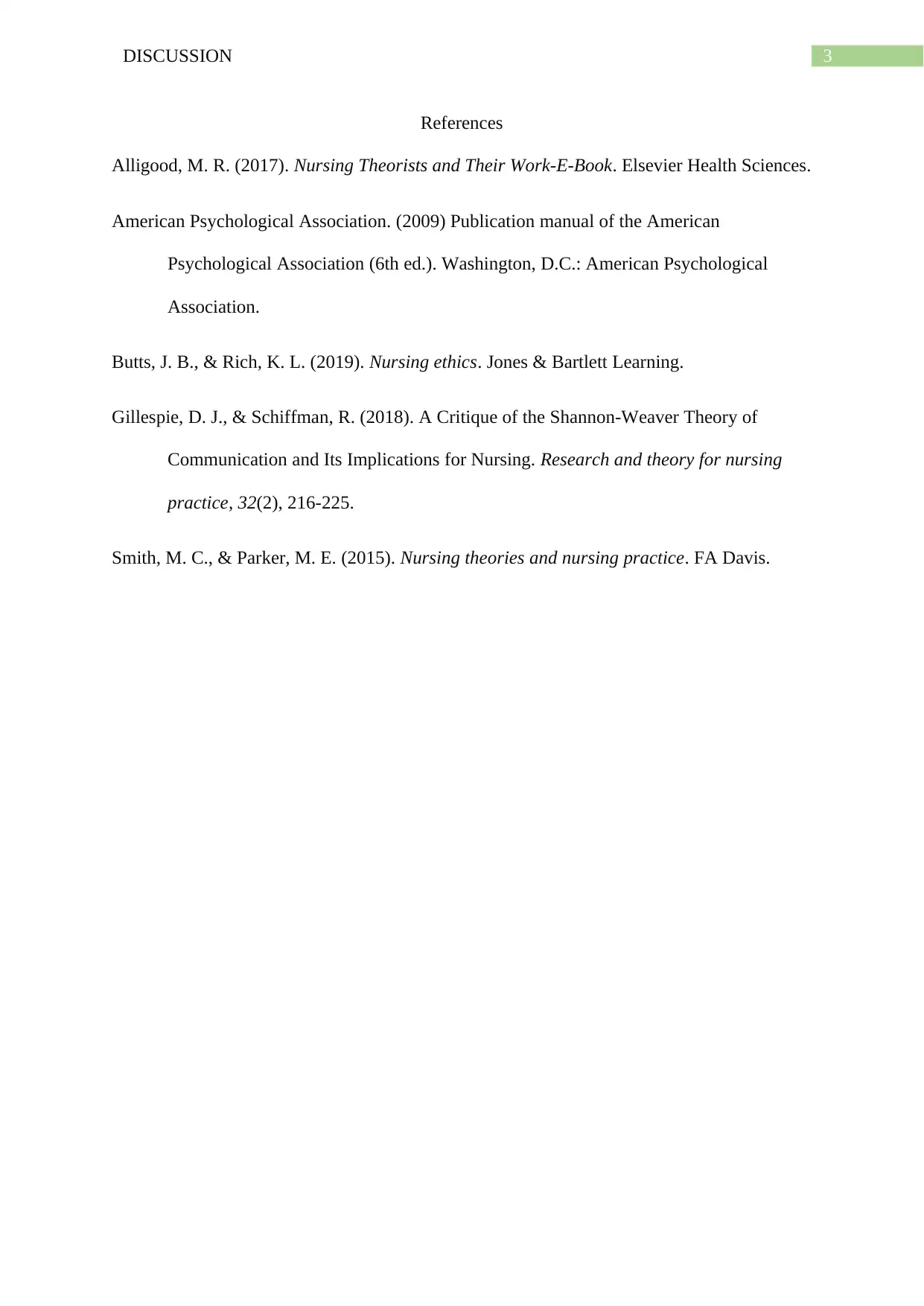N491: Analyzing Nursing Theories and Their Impact on Practice
VerifiedAdded on 2022/09/05
|4
|776
|25
Discussion Board Post
AI Summary
This discussion post, created for a Nursing course (N491), examines the application and impact of various nursing theories on professional practice and patient care. The author discusses the course objectives, which focused on understanding different nursing theories such as Florence Nightingale's legacy, Dorothy Johnson's Behavioral System Model, and Sister Callista Roy's Adaptation Model. The assignment highlights how these theories provide frameworks for patient care, communication, and clinical reasoning. It emphasizes the course's influence on professional practice, illustrating how theories like Roy's Model and the self-care deficit theory improve patient outcomes by ensuring patient safety, autonomy, and effective care delivery. The post concludes by underscoring the importance of nursing theories in enhancing patient care and fostering interdisciplinary teamwork in a changing healthcare landscape.
1 out of 4









![[object Object]](/_next/static/media/star-bottom.7253800d.svg)